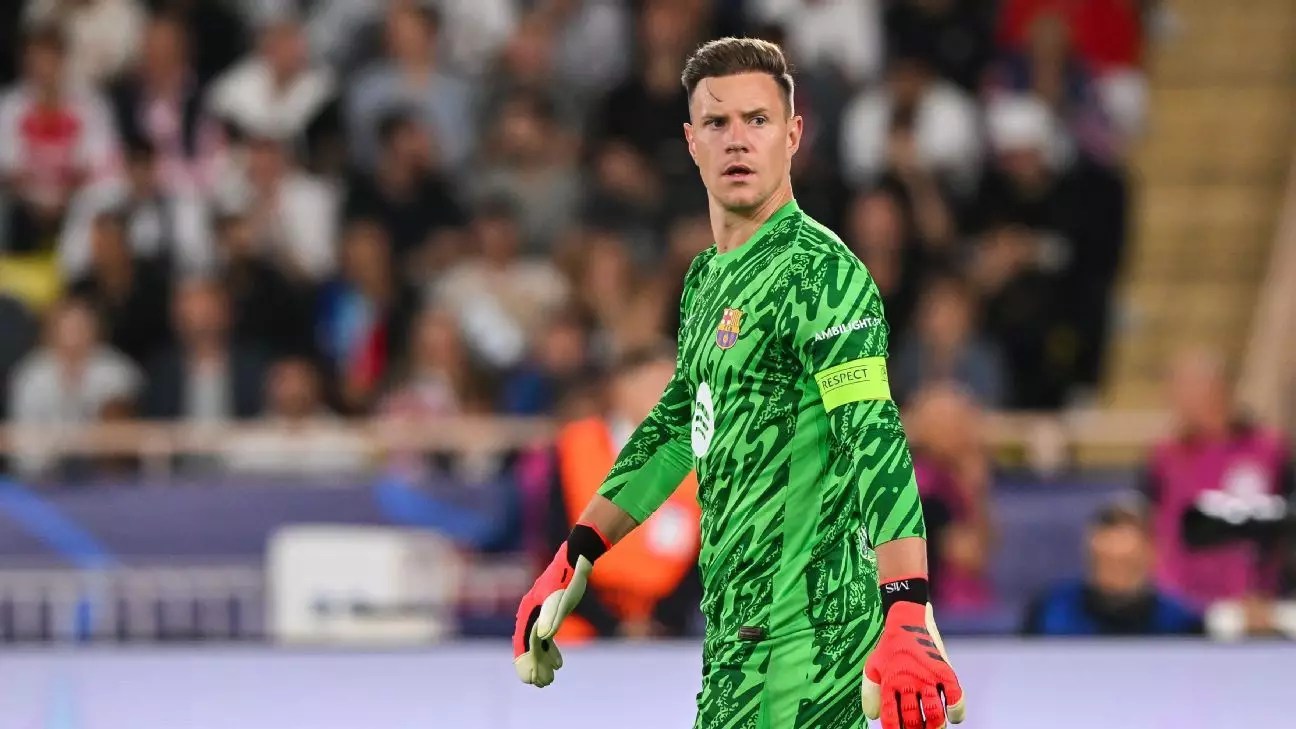Barcelona’s recent predicament with goalkeeper Marc-André ter Stegen exposes a profound tension between legal boundaries, ethical considerations, and pragmatic club management. As the club seeks to leverage LaLiga’s injury rules to free up essential registration space, it confronts a complex web of player rights and institutional regulations. The core of the controversy lies in Ter Stegen’s refusal to provide medical consent—a move that not only hampers the club’s administrative efforts but also raises questions about athlete autonomy and contract transparency.
Officially, LaLiga’s injury management provisions exist to facilitate clubs under financial and squad size constraints; they serve as vital tools for navigating the narrow margins of top-tier football. However, these rules presuppose open communication and player cooperation. When a key figure like Ter Stegen opts to withhold medical data, it underscores a fundamental clash of interests: the player’s right to control personal health information versus the club’s need to comply with league regulations. Barcelona’s reluctance to accept this impasse highlights a deeper ethical debate—should a club be able to bypass player consent if it benefits their sporting or financial positioning? From an ethical standpoint, forcing disclosure without consent could violate rights related to medical privacy and set a risky precedent for player-club relations.
Moreover, the club’s internal response—considering disciplinary action and potentially fining the goalkeeper—treads a delicate line. Disciplinary measures might be viewed as an overreach, especially considering the athlete’s individual rights. Yet, from a pragmatic perspective, Barcelona’s urgency to register players before the season begins adds pressure that fosters a hardline approach. It reveals a club desperate to optimize its squad amidst regulatory constraints but perhaps at the cost of trust and player rapport.
Legal Strategies and Ethical Quagmires in Modern Football Management
The situation illustrates not just a legal conundrum but a broader reflection of how professional sports institutions increasingly operate at the borders of legality and morality. Clubs can face significant repercussions if they attempt to sidestep regulations, risking sanctions or tarnishing reputations. Conversely, players possess protected rights that can restrict clubs from unilaterally accessing sensitive medical records.
Barcelona’s consideration of alternative legal measures demonstrates their strategic desperation. It appears they are weighing other avenues to bypass the roadblock—possibly through contractual interpretations or invoking emergency injury provisions within LaLiga’s framework. Yet, these alternatives are not without risk; they could invite legal challenges from stakeholders or even scrutiny from regulatory bodies concerned with contractual fairness and privacy protections.
The case also underscores the importance of transparent communication and trust. Ter Stegen’s explicit refusal, delivered via a certified fax—an archaic but formal mode—reflects an intent to assert control. It emphasizes that modern clubs must adapt to a new era where player rights are paramount, and any breach could lead to long-term damage. It’s increasingly evident that clubs need to develop nuanced strategies that respect player autonomy while navigating league regulations effectively.
Implications for the Future of Player-Club Relations and Regulatory Frameworks
This incident exemplifies the ongoing evolution of athlete rights and how leagues regulate medical data sharing. It suggests a potential shift towards more player-centric policies, recognizing that health privacy cannot be sacrificed under pressure. The debate could catalyze reforms that clarify the boundaries of league rules and establish stricter guidelines around consent and data sharing.
Furthermore, this situation hints at a possible redefinition of club strategies. Relying solely on medical data to manipulate roster rules may become less viable if players start asserting stronger protections. Clubs might need to invest more in transparent communication, building trust with players about data management and the purpose of sharing health information.
In a broader sense, Barcelona’s dilemma raises fundamental questions about power balances in professional sports. Success often depends on regulatory flexibilities, yet overreach or perceived coercion can undermine athlete rights, eroding trust in the sport’s governance structures. The outcome of this case will likely influence future negotiations and regulatory interpretations, shaping how clubs and players coexist in an increasingly rights-conscious landscape.
This unfolding controversy serves as a stark reminder that in high-stakes football, legal cleverness must be balanced with respect for personal rights and ethical integrity. The way Barcelona manages this complex situation could set a precedent, influencing policies across leagues and fostering a more athlete-centered approach to injury management and data privacy.


Leave a Reply